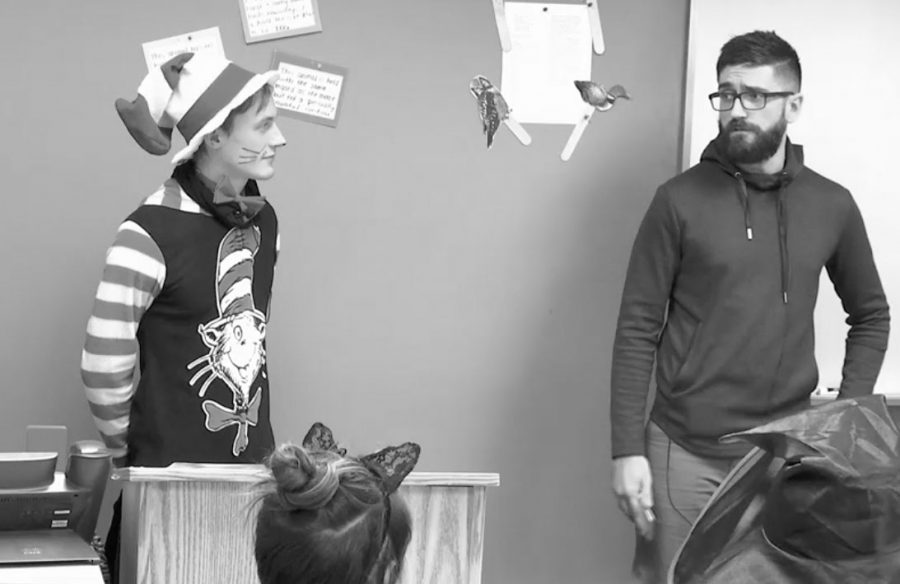Filament Games looks for ways to turn learning into play
Filament Games staff members Ethan Cayko, left, and Brandon Pittser spoke at the fifth Stem Center Speaker Series presentation of the semester held on Halloween (hence Ethan’s Cat in the Hat costume) at the Truax Campus.
November 7, 2018
When we think of what results from playing video games, education is usually not the first thing that comes to mind. But as technology continues to thrive, using games as a medium for learning is becoming increasingly important.
On Oct. 31, in Madison College’s STEM center, Ethan Cayko from game-based learning company “Filament Games” gave a presentation on the process of building and marketing educational video games.
The process of building a game requires the cooperation of many different team members with unique talents. The team at Filament Games includes: a producer, project manager, designer, engineer, composer, and the help of many others to make the final product a reality.
Additionally, the games must be tested by their prospective players. At Filament Games, the testers are from every age group, but the most criticism, Cayko notes, comes from brutally honest third graders.
Cayko looks forward to these testing days where he gets to watch all the hard work done by him and his team members come to action in the hands of the players. Cayko noted that the most rewarding part is watching someone play the game, and afterwards, come out knowing something they didn’t know before.
After a game is created and tested, it must be marketed and distributed. Filament Games follows the 80/20 rule: 80 percent content, 20 percent sales. If the content is good, consistent, and credible, then there will be far more sales than advertising the product alone.
Additionally, Filament Games is involved in social media, YouTube, podcasts, and outreach to schools and the community. The company often attends schools to introduce students to what a career in a STEM field could look like.
When it comes to choosing between a fun game and an educational one, Ethan Cayko doesn’t believe you have to make a distinction.
Any video game player knows that you learn an immense amount of information while you are playing games without realizing it, even if this information is fictional.
If we can contain a large amount of information from playing a game without realizing it, why not create a game that teaches you real-world knowledge while remaining fun to play.
“Any game can teach you something,” said the STEM presenter. This knowledge could be used in a new avenue of learning to teach skills to people of all ages in a fun and engaging way.































